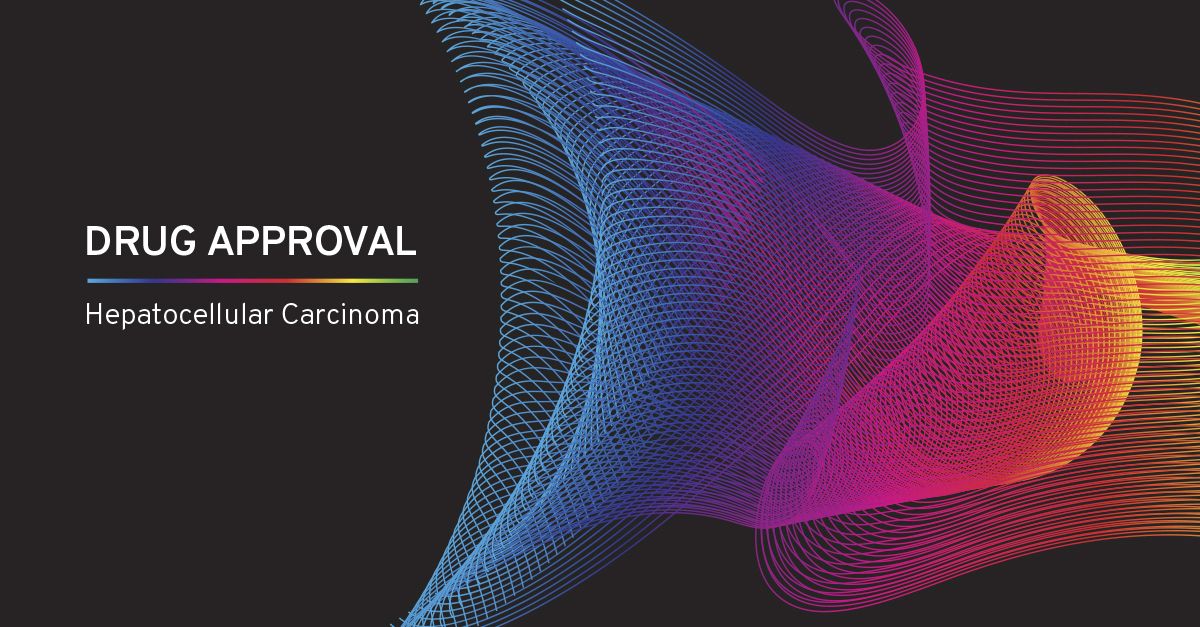On May 13, 2019, the United States Food and Drug Administration (FDA) expanded the indication of the angiogenesis inhibitor ramucirumab to include use in patients with hepatocellular carcinoma (HCC) who have an alpha-fetoprotein (AFP) of greater than or equal to 400 ng/mL and have previously been treated with sorafenib. This decision was based on results from the randomized, phase III REACH-2 trial, which compared ramucirumab to placebo in AFP-high patients with advanced HCC who have progressed on sorafenib treatment. In this trial, compared with placebo ramucirumab resulted in a significant improvement in both overall survival (8.5 months vs 7.3 months, hazard ratio [HR] 0.71; P = .020) and progression-free survival (2.8 months vs 1.6 months, HR 0.45; P <.0001). The overall response rate was 4.6% in patients receiving ramucirumab, compared with 1.1% in patients receiving placebo. The adverse event profile observed with ramucirumab was similar to that seen with other angiogenesis inhibitors, including fatigue, peripheral edema, hypertension, abdominal pain, decreased appetite, proteinuria, nausea, and ascites. With the new approval, the FDA also removed ramucirumab’s former black box warning for hemorrhage and gastrointestinal hemorrhage.
High Altitude: High levels of AFP among patients with HCC are an indicator of more-aggressive disease, and this approval is an important advance in the management of this vulnerable population. However, given the relatively small improvement over placebo and low response rate, there is need for continued advancement. Of note, this is the first phase III trial in HCC to show a benefit in a biomarker-selected population, and these results will certainly inform future clinical trial design. While response rates were low, there is potential to improve outcomes, through combination with chemotherapy or other targeted therapies—although further studies are needed. In other tumor types, combination of angiogenesis inhibitors and immunotherapy have resulted in improved response rates over either agent alone, and this may be a valid path to pursue in HCC.
Ground Level: HCC is a complex malignancy with few effective treatment options and a generally poor prognosis. Any novel treatment option that results in a prolongation of survival is an important advance. The National Comprehensive Cancer Network guidelines have already been updated to place ramucirumab as a Category 1 recommended therapy for patients with AFP greater than or equal to 400 ng/mL who have progressed on first-line therapy. Therefore, testing for AFP will be important in any patients with HCC that has progressed during or after treatment with sorafenib and for whom ramucirumab might be considered.

